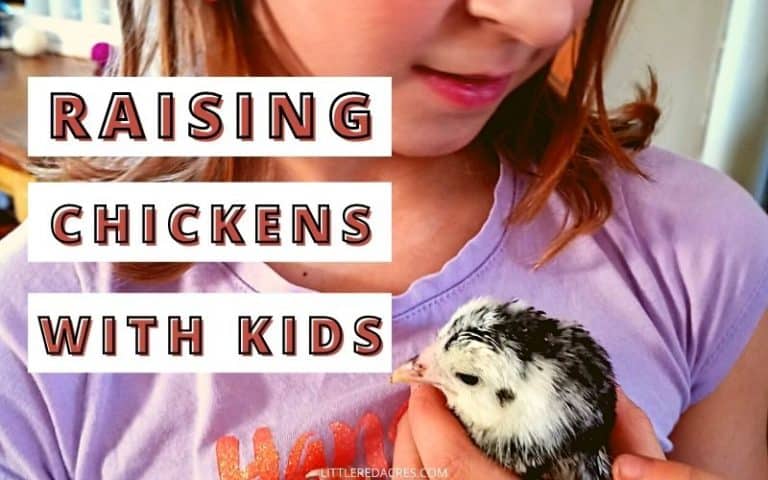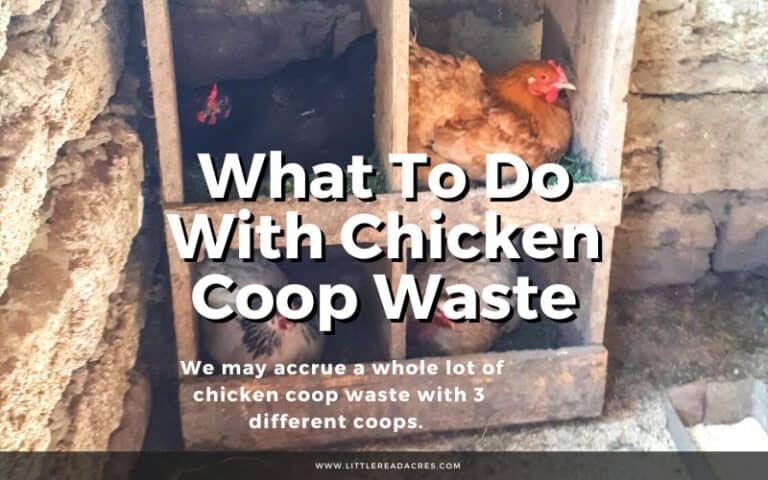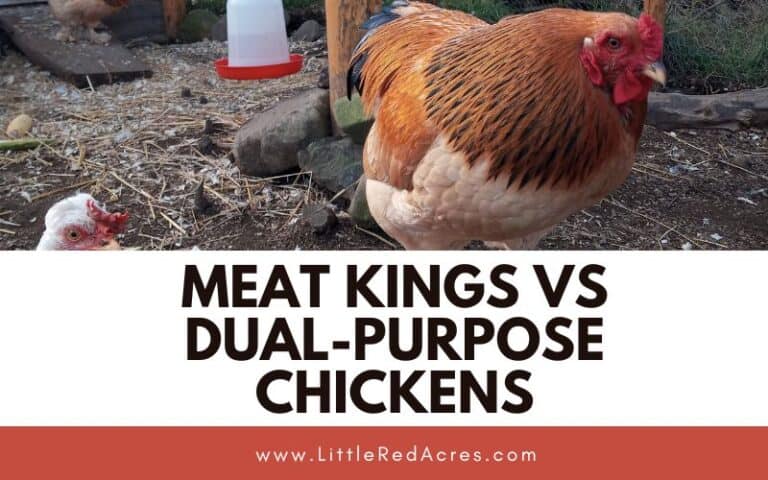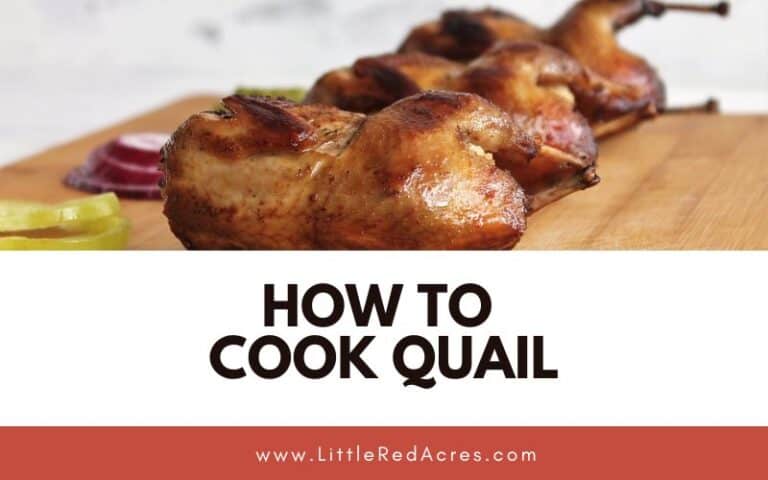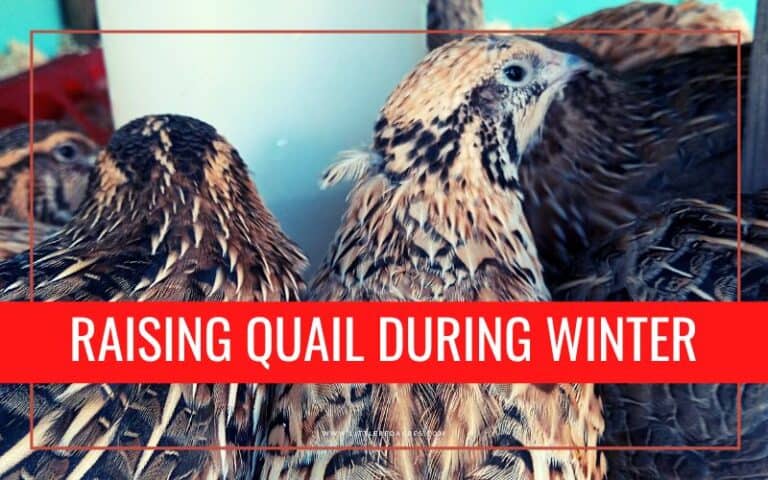Chicken First Aid: Keeping Medical Kit for Chickens
Inside: Ensure your chickens' well-being with a comprehensive medical kit for chickens. Be prepared for common ailments and emergencies.
This was not on my to-have list. I never thought about needing a medical kit for chickens. Everything in it, so far, has been things that we have needed. Plus there are a few more things that are on order because I don't want to be caught unprepared and I know you don't want to be either.

This post may contain affiliate links, see my disclosure policy for more information.
Keeping a Medical Kit for Chickens
I have a small clear tote in my kitchen, by my backdoor that is my medical kit for chickens. It has things in it that I have needed in the past for our chickens as problems have popped up.
Things that I want to make sure we have on hand at all times, just in case. And things that I don't want to be used by someone else… like eye drops, please don't use them on yourself or someone else after you use them with a chicken. Eww.
There is no limit to what you might have to deal with when it comes to owning chickens.
Get updates & freebies delivered to your inbox!
What's in my Medical Kit:
Maybe you already have some of these things in your house. In beginning there were trips to feed stores (not too many of them around here) and waiting on orders from Amazon.
What you might want to include:
- eye drops – a chick hatched with a slightly puffy, runny eye
- Enfamil Poly-Vi-Sol – a vitamin boost for chicks (or chickens) that need it, the chick with a puffy, runny eye also got this – just a few drops a couple of times a day
- vitamin E, B12, and Selenium – for treating wry neck
- Avon Skin So Soft or coconut oil (which is my now preferred method)- scaly leg mite treatment
- Diatomaceous Earth – treating and preventing mites and lice, add it to their dust bath
- Epsom Salt – for soaking feet in treatment of bumblefoot
- Banixx for Chixx – for Pecking Sores, Bumble Foot, Fowl Pox, Raw Vent Area Infection, Chicken Leg/Foot Injuries
- Vetericyn Plus – Spray to Clean Pecking Wounds, Cuts, Frostbite, and Sores on Chickens and Other Bird Species. Offers Non-Toxic Relief Without Stinging or Burning.
- gloves!!! Oh my, you are going to want gloves because it can be gross. I want gloves when I deal with prolapsed chickens.
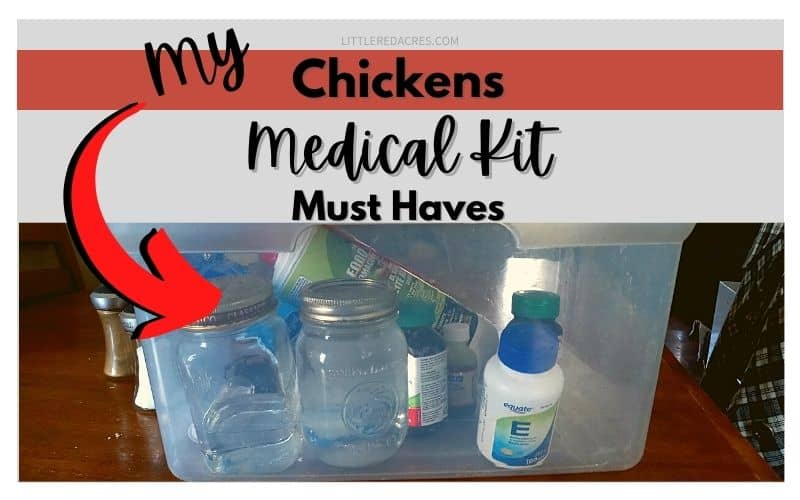
Household Items to Have
One item that we have found to be extremely useful, which I never would have imagined I would be using with my chickens was sugar. Granula white sugar.
It reduces swelling in tissues, such as when treating a prolapse. Water-based lubricate is also something you might want to have on hand for treating prolapse. Something I never thought I would have to deal with but I did, she was fine and hasn't had any more problems.
Ingredients for homemade electrolytes for chickens: 1 gallon of warm water, 1 tablespoon sugar, 1 teaspoon baking soda, and 1 teaspoon salt. Learn more about making electrolytes for chickens here.
Apple cider vinegar can be added in small doses to your chickens' water. It can be used to treat respiratory issues, maintain the immune system, and support gut health.
I think it is important to be prepared for what might happen. Having a few things on hand can save you not only time but worry. I also store everything in a plastic tote for a reason. If give me a tote to use at a moment's notice if I need to get a chicken a warm soak. No searching for something to stick your, probably dirty, chicken in.
Frequently Asked Questions
Do chickens need apple cider vinegar? Apple cider vinegar is safe for chickens as long as it's used in moderation. Most chicken keepers who add this acidic supplement to their hens' diets only use a tiny bit at a time, which is enough to provide the extra level of wellness support they're looking for.
Will chickens stop laying if coop is dirty? Other more serious causes for hens to stop laying include an imbalanced diet, parasites, disease, or a dirty coop. Feed your laying hens a complete layer feed diet with supplemental calcium and keep their coop clean to help your flock stay healthy and productive!

Want More?
Do Your Quail Need More Calcium?

